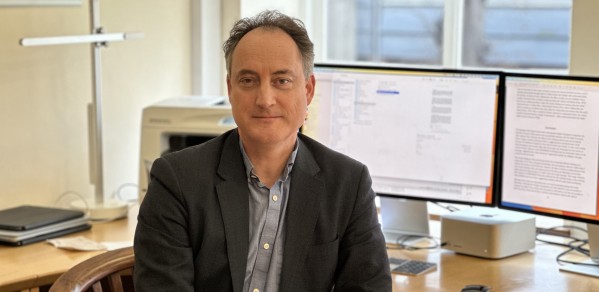
Professor Richard Prager has been appointed Chief Scientific Adviser at the Department for Levelling Up, Housing and Communities. Acting Head of Department is Professor Colm Durkan.
I am honoured and delighted to have been given this opportunity to help steer the Department through this transition phase. I will put my years of experience as a Deputy Head to good use in helping us to collectively find the direction we need to take for the coming years to continue to build and then maintain our reputation for excellence in Research and Teaching.
Professor Colm Durkan
Professor Richard Prager has been appointed Chief Scientific Adviser at the Department for Levelling Up, Housing and Communities (DLUHC). In his new role Professor Prager will support the science and engineering profession in the DLUHC, offer advice on specific initiatives and work with other Chief Scientific Advisors across government to enable work to be informed by appropriate data and scientific principles.
Commenting on his appointment, Professor Richard Prager said:
“I am delighted to be joining the Department for Levelling Up, Housing and Communities and to have a chance to build on the strong scientific and engineering foundations that Professor Alan Penn has created. I will be particularly interested to contribute to the department’s work in sustainable housing, building safety and the integration of evidence across different aspects of society. I am also looking forward to collaborating with CSAs from other departments on broader strategic projects.
“The team of government chief scientific advisers aim to ensure, through advising ministers and senior officials, policy decisions are evidence-based and supported by the highest-quality scientific evidence and understanding.”
Colm Durkan, Professor of Nanoengineering Science has taken over from Professor Richard Prager and is the Acting Head of Department until the new Head of Department takes office.
Professor Durkan is the founder and head of the Nanoengineering Science group at the Nanoscience centre of the University of Cambridge.
His research is focused on understanding the fundamentals of the link between form (size & shape) and function in Nanomaterials, with an emphasis on advanced modes of lithography, microscopy and surface analysis, as applied to both highly applied everyday problems as well as working on the underpinning science. He also has a keen interest in the fabrication of novel devices and device architectures.
Commenting on his appointment Professor Durkan said:
"I am honoured and delighted to have been given this opportunity to help steer the Department through this transition phase. I will put my years of experience as a Deputy Head to good use in helping us to collectively find the direction we need to take for the coming years to continue to build and then maintain our reputation for excellence in Research and Teaching."
Originally from Dublin, Professor Durkan obtained his primary degree in Physics from Trinity College Dublin. He was also a Trinity College Foundation scholar and the recipient of the Fitzgerald medal in 1992.
Professor Durkan obtained his PhD in Physics, also from Trinity College, on the topic of Scanning Near-field Optical Microscopy (SNOM) and built the first SNOM in the country.
After spending a postdoctoral period at Konstanz University in Germany, during which time he was awarded an Alexandar von Humboldt visiting fellows’ scholarship for research into atom optics, he came to work in Cambridge in August 1997 as a postdoc.
He became a university lecturer in 2000, progressed to full professor and also served as Deputy Head for Teaching.
The new Head of Department will be announced in due course.

